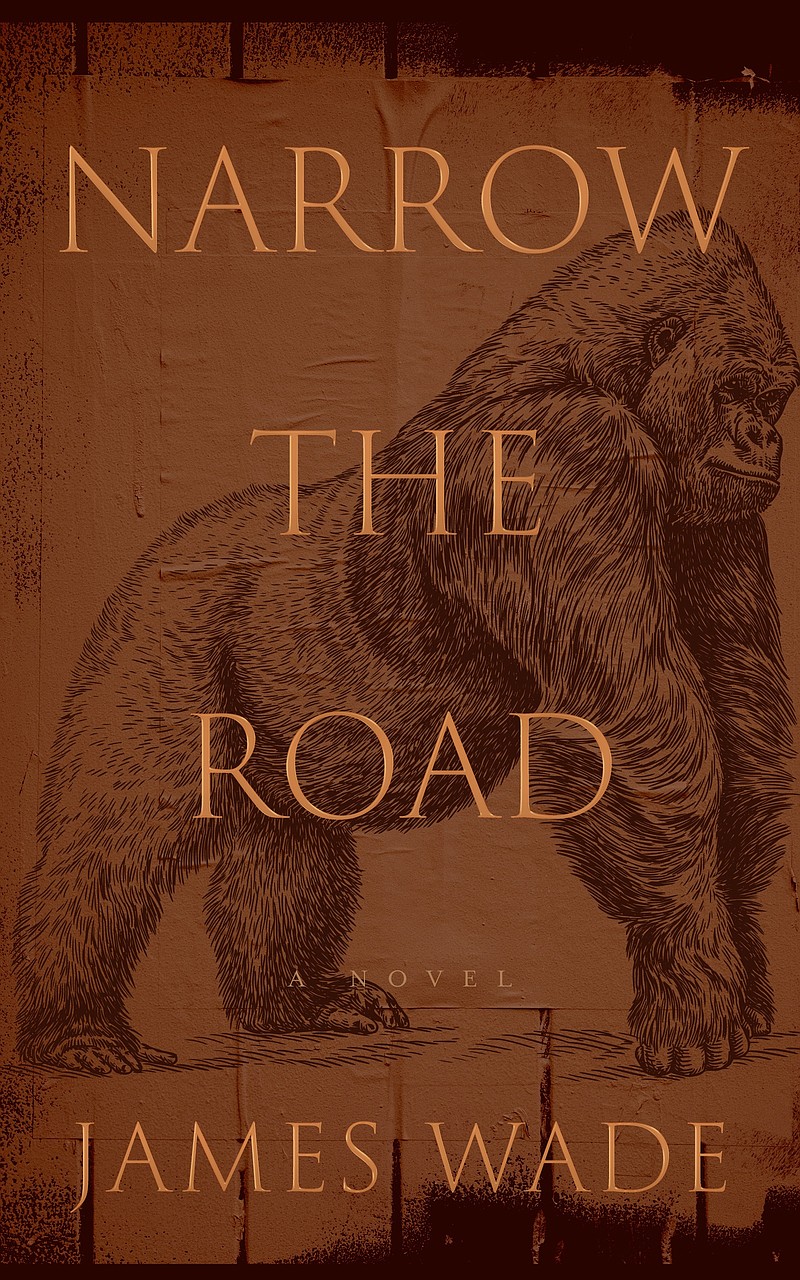“NARROW THE ROAD” By James Wade (Blackstone Publishing, 292 pages, $28.99)
“Narrow the Road,” the fourth novel from James Wade, opens in a failing cotton farm in Depression-era East Texas. William Carter, 15, has been left in charge of not only the farm, but a bedridden mother dying of a brain tumor. The boy’s father, Thomas, a veteran of the Great War, has been long absent in Washington, supposedly campaigning for veterans’ benefits. His letters are few, and the boy’s urgent letters to him are never answered. When William discovers that his father may have secretly returned to Texas weeks or months earlier, he sells the family’s mule and rifle — both for a pittance — and sets out to locate and retrieve him.
The journey that follows is a classic coming-of-age tale where unforgettable characters struggle through a damaged land. Before leaving, William picks up a traveling companion, Ollie, a neighbor boy whose small home is overrun with out-of-work relatives. In short order, the two meet a drunken monk, are drawn into a traveling medicine show featuring a “big-ass” boxing gorilla, accused as thieves, and robbed at gunpoint by a teenager named Lena before freeing her from vicious lumberjacks, then uniting with her in a traveling trio.
And that’s just the beginning.
Two of Wade’s previous novels, “Beasts of the Earth” and “All Things Left Wild,” received Spur Awards from the Western Writers of America, and he has received other awards for short stories published in a wide variety of journals. His greatest strength as a novelist may be his deceptively simple yet powerful sentences, as in the book’s first two-line paragraph, which directly addresses the reader, or maybe the gods:
Here he comes, this boy. And what to make of him?
In one sense, the ensuing adventures of William, Ollie and Lena become a journey through American literature, as scenes by turn evoke Mark Twain, John Steinbeck, Ray Bradbury and Cormac McCarthy. While few writers could pull this off, Wade’s poetic and evocative prose keeps the ball rolling. Outside of Doucette, for example, “the forest on either side came to an abrupt halt. The country spilled out into low meadows and the shadows that had accompanied them through the trees were fled away all except their own and they continued along highway forty.”
After a brief discussion about goats, Wade writes, “They came three-wide down the highway. Sunburnt and covered to the knees in the fine red dust that permeated the squalid world in which they wandered. Poor, broken world.”
Between roadside antagonists and the search for a better nature, short stand-alone chapters provide excerpts from a journal kept by William’s father, which William acquires from the widow of his father’s wartime friend. His father’s demons slowly emerge in these passages, rising revelations that add to violent encounters on the road. In one entry, written in a Washington camp filled with hundreds of protesting veterans, William’s father writes with optimism: “I know I have been too often gone. Perhaps after this, once the money is paid, I might rest my mind at home. It seems a wishful thing, but it is a wishful spirit that infects this place, and I am, for the first time in many years, not immune.” Later events and entries offer clues to an approaching resolution that promises to be not so much wishful as transformative.
Late in the book, an old woman, a soothsayer who has seen William’s father, tells him, “Time is a memory and memories are funny little shits.” She opens a jar of foul liquid and pours some into a bowl:
She stirred the mixture and leaned forward over it like some story-book witch.
“If I told you that nothing you do has anything to do with you,” she asked, “would you see it as a condemnation or a freedom?”
The complicated answer to that question keeps Narrow the Road engrossing to its final poetic line.
To read an uncut version of this review — and more local book coverage — visit Chapter16.org, an online publication of Humanities Tennessee.
 Blackstone Publishing / “Narrow the Road”
Blackstone Publishing / “Narrow the Road”
